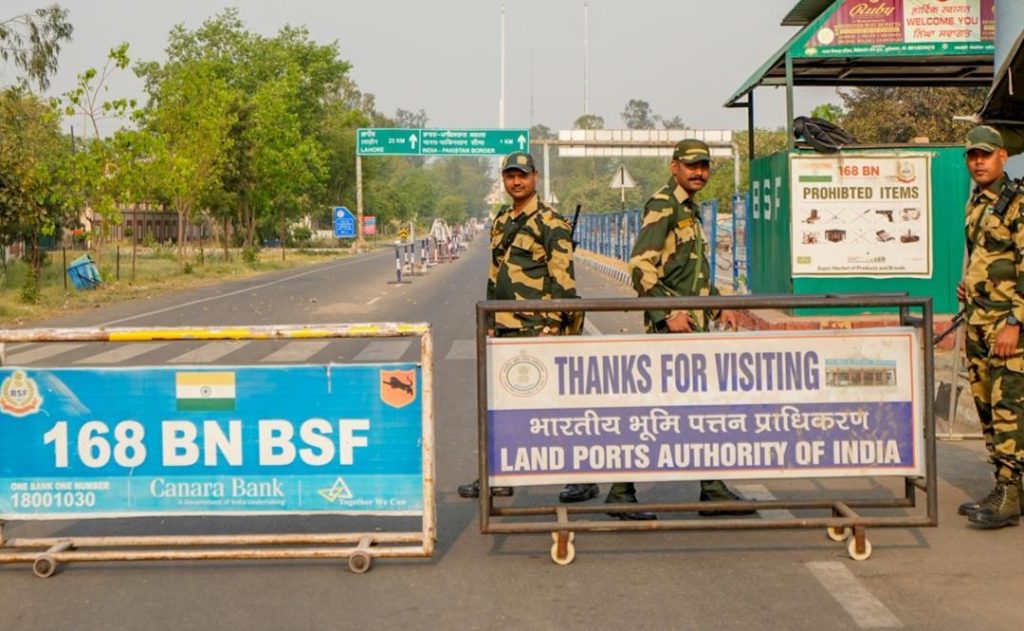
Attari-Wagah Border Between India & Pakistan Completely Closed
The Attari-Wagah border, a symbol of India-Pakistan tensions, has been completely closed, leaving thousands of people stranded on both sides. According to reports, no person from either side crossed to the other side on Thursday, marking a significant escalation in the already tense relations between the two countries.
The closure of the border comes in the wake of Pakistan’s decision to shut down the crossing point and stop accepting its citizens who were deported by India. This move was taken in response to the mass deportations of Pakistani nationals, which were initiated after the Pahalgam terror attack that claimed the lives of 26 tourists.
The Pahalgam attack, which was carried out by Jaish-e-Mohammed terrorists, was a devastating blow to India’s tourism industry. The incident, which occurred on Saturday, was widely condemned by people from all walks of life, and the Indian government was quick to respond by launching a series of operations against the perpetrators.
However, Pakistan’s reaction to the incident has been seen as provocative by many in India. The country’s decision to shut down the Attari-Wagah border and stop accepting its citizens who were deported by India has been seen as a retaliatory measure, aimed at putting pressure on the Indian government.
The Attari-Wagah border, which is one of the most heavily guarded borders in the world, has been a symbol of India-Pakistan tensions for decades. The border, which is located in the state of Punjab, is a major crossing point for people and goods between the two countries.
In recent years, the border has been the site of several incidents of violence and tension, including the killings of Indian soldiers by Pakistani troops and the infiltration of militants into Indian territory. The border has also been the subject of several disputes over the years, including the issue of the Line of Control (LoC) and the status of Kashmir.
The closure of the border is likely to have significant economic and humanitarian implications for both countries. The border is a major trade route, and the closure of the border is likely to lead to a significant increase in the cost of goods and services for people on both sides.
Furthermore, the closure of the border is likely to have a significant impact on the lives of people who rely on the border for their livelihood. Many people on both sides of the border rely on the border for their livelihood, and the closure of the border is likely to lead to a significant loss of income and livelihood.
The closure of the border is also likely to have significant implications for the relations between India and Pakistan. The two countries have had a tumultuous relationship for decades, and the closure of the border is likely to further escalate tensions between the two countries.
In recent years, the relations between India and Pakistan have been strained due to several issues, including the Kashmir dispute and the issue of terrorism. The two countries have been engaged in a series of diplomatic efforts to resolve their differences, but so far, no breakthrough has been achieved.
The closure of the border is likely to further complicate the situation, and it remains to be seen how the two countries will resolve their differences. However, one thing is certain – the closure of the border is a significant escalation of the tensions between India and Pakistan, and it is likely to have far-reaching implications for the region.
In conclusion, the closure of the Attari-Wagah border between India and Pakistan is a significant development that is likely to have significant implications for the relations between the two countries. The border, which has been a symbol of India-Pakistan tensions for decades, has been closed in response to Pakistan’s decision to shut down the crossing point and stop accepting its citizens who were deported by India.
The closure of the border is likely to have significant economic and humanitarian implications for both countries, and it is likely to further escalate tensions between the two countries. However, one thing is certain – the closure of the border is a significant escalation of the tensions between India and Pakistan, and it is likely to have far-reaching implications for the region.






